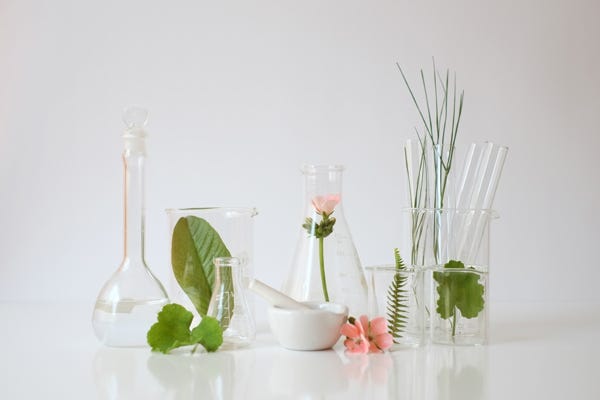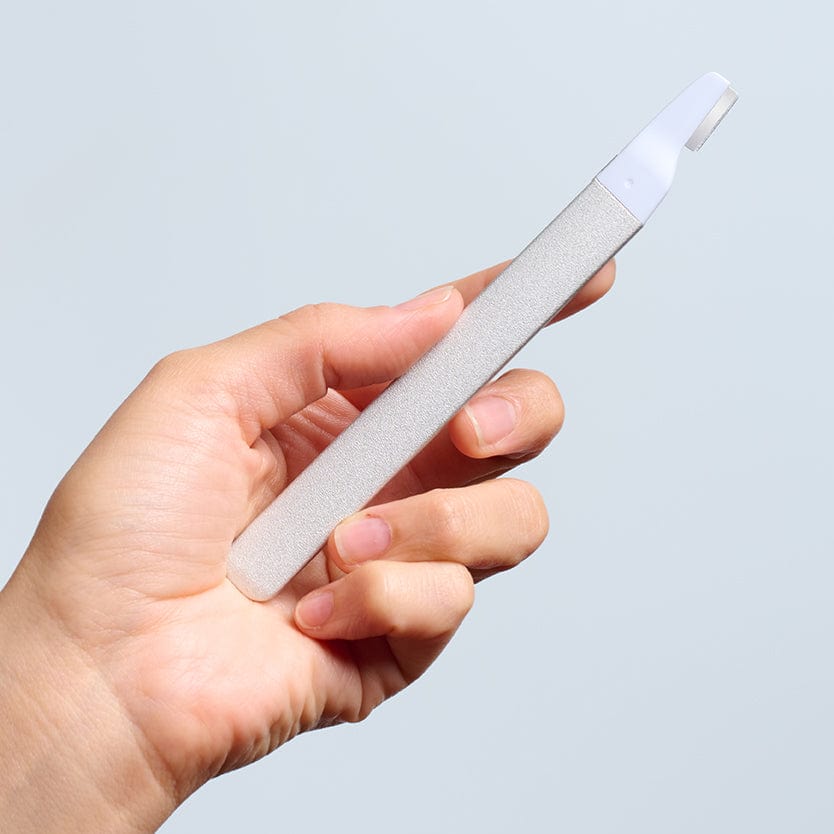Alcohol In Skincare: What To Look For
Written by Kerry Benjamin

When it comes to skincare, there are ingredients we know to avoid like parabens, sulfates and fragrance. But what about alcohol? Alcohol is a very common ingredient, but it can be hard to decipher what it’s actually doing for your skin. Here’s the lowdown on alcohol and whether or not it’s worth keeping in your skincare routine.
The Three Types Of Alcohol In Your Products
Alcohol plays many roles in skincare, from controlling sebum production to improving product texture, which is why it can sometimes be tricky to determine whether it’s good or bad for your skin. The most important thing to remember is that not all alcohol is the same and the way they’re incorporated into a formula makes all the difference.
SIMPLE ALCOHOL:
Listed as isopropyl, methanol, ethanol or denatured alcohol on skincare packaging, simple alcohols are derivatives of ethyl alcohol, which is the same type you might find in a cocktail. These alcohols are derived from sugars, starches, and carbs. Simple alcohols are good solvents and preservatives, keeping the product stable and blending ingredients together that would usually separate. Simple alcohols are also used to remove facial oil and help active ingredients penetrate into the deeper layers of the skin.
FATTY ALCOHOL:
Listed as acetyl, stearyl or cetearyl, these alcohols are often derived from natural fats like palm oil, coconut oil, and jojoba oil, but can also be produced synthetically from petroleum. Fatty alcohols are used to moisturize the skin and thicken the product texture.
AROMATIC ALCOHOL:
Chemically similar to simple alcohols, aromatic alcohols can be derived from essential oils or synthetic sources and have a strong fragrance. They are often added in small quantities to products in order to add scent and act as a preservative. The most common aromatic alcohols are benzyl alcohol and phenethyl alcohol.
Simple Alcohol: It’s All About The Formula
Simple alcohols can be very helpful in reducing acne-causing bacteria and sebum production, which is why you’ll often find this type of alcohol in astringent toners. Simple alcohols like denatured alcohol can also help drive other active ingredients deeper into the skin.
The trick with simple alcohols is that if they overpower the formula or are not formulated with other hydrating ingredients, it’s possible that these types of alcohol can strip away too much oil, drying out the skin and harming the skin’s essential lipid barrier.
When looking at products formulated with simple alcohols, check for emollients or other ingredients in the formula that hydrate the skin. Our TCA MULTI-ACID BODY PEEL contains lactic and glycolic acid, exfoliators that resurface, brighten, and hydrate. It is also formulated with SD Alcohol 40 to help these ingredients penetrate deeper into the skin so that you get more effective exfoliation.
Embrace Fatty Alcohol
Fatty alcohols like stearyl or cetearyl alcohol actually reinforce the skin’s lipid barrier instead of stripping it. They are non-irritating and used as emollients to lock in skin moisture. Fatty alcohols are also excellent emulsifiers, giving skincare formulas a thicker and softer consistency. While fatty alcohols are generally safe for skin, some can act as allergens so it’s always best to be aware of your sensitivity and do a patch test
Avoid Aromatic Alcohol
Aromatic alcohols and simple alcohols have very similar compounds and it’s best to avoid any product that carries more than 1% aromatic alcohols. Many aromatic alcohols like benzyl alcohol have also been linked to contact dermatitis and other signs of skin sensitization.
About the Author

Kerry Benjamin, a licensed aesthetician, has over 14 years of experience. Kerry is the driving force behind StackedSkincare. As the company's CEO, Kerry has dedicated her career to revolutionizing skincare. Her innovative approach combines peels, serums, and specialized tools to effectively address a wide range of skin concerns. CA LE license number Z98459.

